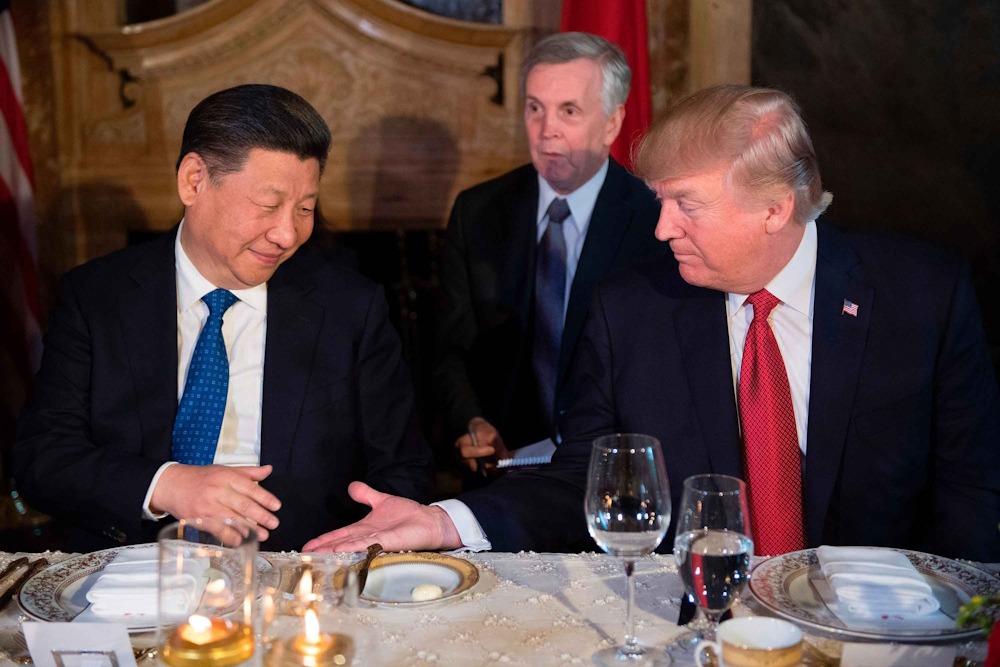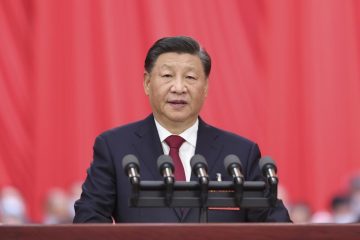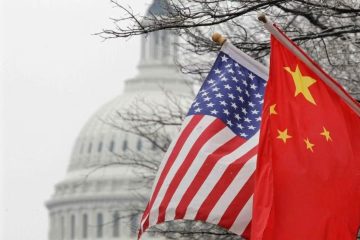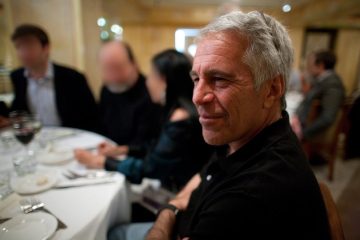Does President Trump have a trade strategy for China?

Is there a defined trade strategy with China under Trump’s leadership. The White House asserts that everything is proceeding as intended, presenting a positive narrative around President Trump’s recent partial tariff reversal, which they are framing as a significant achievement. Mr. Trump appears to be navigating the situation without a clear plan, particularly regarding his approach to China, which raises questions about the effectiveness of his strategy. Stocks experienced a brief relief rally on Wednesday; however, they declined once more the following day. Investors are acutely aware that the trade war remains ongoing, with lasting repercussions continuing to unfold. Despite the implementation of a 90-day pause, the remaining tariffs represent the most significant tax increase since 1982. Their scale surpasses that of Bill Clinton’s tax increase in 1993 and George H.W. Bush’s in 1990. Taxes hinder economic growth.
The situation is further complicated by the escalating trade tensions with China, which stands as the world’s second-largest economy. The White House announced on Thursday that the tariff imposed on all Chinese exports to the United States will now stand at 145%. In 2024, the United States recorded imports of $439 billion in goods from China. Applying a 145% increase to this figure provides insight into the potential impact on American consumers and businesses.
Treasury Secretary Scott Bessent has stated that the primary objective of U.S. trade policy has consistently been to position China as a key offender in international trade practices. There are compelling arguments for adopting a distinct approach towards China, particularly in light of its frequently aggressive trade practices. Key issues encompass cyber attacks targeting U.S. companies and government entities, intellectual property theft, discriminatory practices against U.S. firms operating in China, and misinformation related to Covid-19. However, the objectives of Messrs. Trump and Bessent regarding China remain ambiguous, as does their strategic approach to attain these goals. Is there an intention to fully separate the two economies? The tariff levels, currently at 145%, indicate significant implications for trade dynamics. The potential for significant economic disruption looms on the horizon, as approximately $600 billion in two-way trade faces the prospect of disappearing or shifting to new sources and destinations in the near to medium term. Strategic decoupling regarding essential goods appears to be a more rational approach.
Despite the current circumstances, Mr. Trump has expressed a continued desire for a trade agreement with China, stating his hopes on Wednesday. The tariffs in this scenario serve as a strategic tool to encourage President Xi Jinping to engage in negotiations. The issue at hand is that tariffs function as a blunt instrument, impacting American consumers and businesses alongside Chinese exporters. Market indicators suggest that the U.S. economy is poised to face challenges ahead. There exists a notable contradiction in Mr. Trump’s approach to various issues concerning China. The President is extending a gesture to Mr. Xi by opting not to implement a law enacted by Congress that mandates the divestiture of TikTok from its Chinese parent company, ByteDance. Last week, the deadline for a TikTok sale was extended by an additional 75 days following China’s withdrawal from a potential transaction. Mr. Trump has declined to implement sanctions on Chinese companies that purchase oil from Russia, thereby supporting Moscow’s military efforts. The recent decisions convey to Mr. Xi that Mr. Trump may not be fully committed to confronting the alleged abuses by China.
Should Mr. Trump be earnest in his intentions, the most effective approach would involve mobilizing allies to combat the challenges posed by Chinese mercantilism. However, he demonstrates a lack of interest in that as well. During his initial term, he missed a pivotal opportunity to isolate China on trade by opting out of the Trans-Pacific Partnership, which excluded Beijing. China subsequently secured agreements with numerous nations that the United States overlooked. This term, Mr. Trump is taking measures that may alienate the allies essential for a unified approach to China. The administration has implemented tariffs on both Canada and Mexico, sparking controversy and raising concerns about national pride in Canada. The administration has imposed tariffs of 24% on Japan, 25% on South Korea, and 20% on Europe. Vietnam has seen a significant increase, reaching 46%, as the surge in exports to the U.S. since the implementation of first-term tariffs has largely come at the expense of China.
The tariffs are currently on hold for a period of 90 days; however, it is widely acknowledged among these nations that Mr. Trump retains the authority to reimpose them at any moment. The decision to block Nippon Steel’s acquisition of U.S. Steel has drawn criticism, particularly given the Japanese company’s commitment to invest billions in U.S. manufacturing. What rationale do these allies have to place their trust in Mr. Trump at this juncture, particularly when he asserts the necessity for their collaboration to curb China’s progression in artificial intelligence? Access to the Chinese market may become crucial for companies facing restrictions in the U.S.
Mr. Trump appears to be grappling with a significant concern regarding the U.S. trade deficit, a focus that extends to both allies and adversaries alike. The deficit is considered a non-issue in economic discussions. In the event of trade challenges with allied nations, these matters can be resolved through the establishment of bilateral or multilateral trade agreements. The foremost challenge facing the global trading system is the exploitation of free-trade regulations by the authoritarian government of China. The unpredictable and fragmented tariff policy implemented by Mr. Trump is unlikely to address the underlying issue effectively. Currently, he appears to be undermining his own interests and those of his nation more significantly than he is impacting the Chinese Communist Party.










